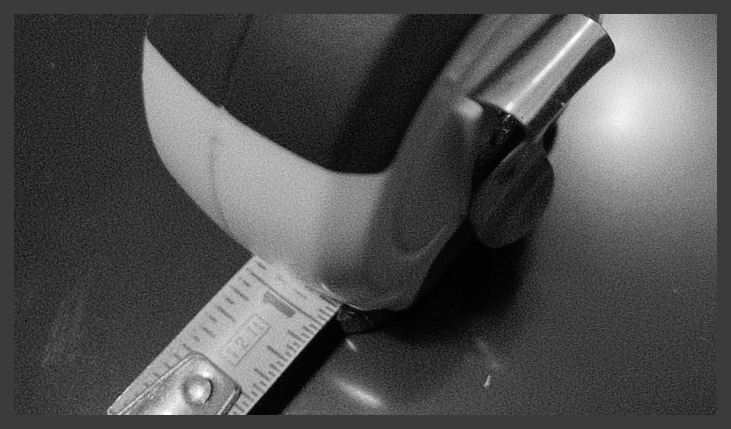The first few paragraphs will tie up last week.
As I said that I would, let me make the distinction between mental and psychological health. The main distinction (for my purposes here today) between mental and psychological health is that Mental is mostly our cognitive perspective of life. Psychological is more of our unconscious infrastructure. Mental is how we process new information, observe the world, and perceive our daily thoughts. Psychological health is a specific focus on how we observe our ability, our determination of self worth and self esteem, and the meaning that we give to our life.
Okay, I am at 80% productivity. This percentage I believe is fundamental to happiness. I think there is a direct correlation between productivity and happiness. If I were to simplify this thought, I would say that we all build our productivity reserves when we work or do tasks toward our greater goals. This is figuratively like a bank account. This can also be literally a bank account if that is tied to the goal. As we increase this percentage, we cinch our leisure exponentially for credit toward our productivity account. This conversion is what I want to focus on personally. I would also like to quickly mention that suffering or struggle do not translate to productivity. Productivity is a skill of accomplishing effective work. While I might be giving90% of my time, I believe that about 80% is productive. This productivity percentage is then factored again (i.e., quality, compounding effort, environmental influence, application, and other internal/ external influences) for outcomes. For example, we can give effort at 100%, but this percentage is then divided by intentionality to get productivity. I made a comment related to this in post #8. “Intentionality” here means that this effort needs to be purposeful to be productive work. Then this productivity gets factored by dozens of other both uncontrollable and controllable factors: how we are applying this work long term for instance. Additionally, it might seem obvious, but people are all at various stages in life. The transaction of our time will not translate the same. We all have a unique environment, unique opportunities, and unique abilities.
I have given myself a productivity score of 80% because I believe that I am very effectively applying my time toward my goals. I observe this percentage as exponentially more and more difficult to improve. Like an exponential equation. Here “x” is our percentage from 1 to 100. “Y” is then the scrutiny in the organization of productive time–the greater the percentage, the greater the scrutiny becomes. For instance, going from 60% to 70% we might be focused on the days a week that we are consistent. Going from 80% to 90%, there is a focus on the minutes. To gain that last remaining percent requires an extreme refinement of every waking moment. Although I am sure there is a relevant term that already exists, I will call this the “productivity asymptote.” This is the idea that productivity, like many things, has diminishing returns. It should be noted that I believe that this percentage increase is linear. Going from 70% to 80% ups the output by 10%. Productivity itself is not exponential, but the output can be and usually is. This is one of the reasons that I believe that many find it difficult to passionately work toward goals. In the beginning, our exponentially diminishing effort is only received by linear productivity. It is not until we factor the greater outcomes that we are potentially rewarded.
I would also like to add that we are not computers, so we have to account for health. We must socialize, we must manage stress, we must eat. We have to take care of our bodies, but even here we can optimize. Every moment outside of our minimal requirements for consistent output is a percent of our effort. Again, this time is factored by the effort level of focus toward your goals. I could spend all day working a job, but if I do not need the money or I could make more money elsewhere, that is not productive. This ties directly into procrastination. It is possible to procrastinate with a task that is not enjoyable. Do not deceive yourself!
Now, applying this idea personally, I scrutinize all of the decisions that I make with my time. This requires me to abide by a tight schedule. I am still very new to this, so I am far from perfect. Since productivity is a skill, I intend to get better with practice. I think it might be fun to create tiers of productivity. Every 5% increase can get a name and a list of requirements for someone to reach that level. For me, I think 80% requires the consistent use of a schedule and at least 10 hours of productive work a day.
I am still very much defining my limits for health. In order to be able to produce results long term, I have to maintain my mind and body, but I am experimenting with separating myself from food as a pleasure. This does not mean that I never enjoy the food I eat. This simply means that I focus food as a resource from energy, recovery and productivity over simple gratification. I am genuinely interested to see how restricting pleasure affects my output in the short and long term. There is no reason to remove pleasure if it does not limit productivity (this is a dangerous level of self restriction), but when it comes to food, for example, I spend too much time preparing the foods that satisfy me more. Reaching higher levels, I must consume calories more out of necessity than desire.
I have already replaced most simple pleasures with ones that work for me. Again, I am learning the limits as I go. This easily borders disorder, but I am curious to know the limits of my body–my machine. This is fun for me. This is the game, and I live for the power my restriction induces. I can hear your silent voices cautioning me, but if the mistake I am going to make in my 20s is “he worked too hard,” I will take it. My behavior has not become dysfunctional, quite the opposite, and I am as healthy as I have ever been physically, mentally, and psychologically. Because of this, I will continue to test the limits. I predict that I will hit a physical limit before I hit a psychological one, but as my environment improves, so will my physiology.
Going from this conversation about productivity, I want to throw out some ideas this week about masculinity. These ideas are the sum of my personal beliefs, my observations, and my media influences.
Making a transition from the conversation about productivity above, I find it strange that society often seems to discourage men from hard work. I have observed a high level of subliminal messaging from the communities around me that suggest that I “take my time.” I have heard this treacherous line too many times: “you’re young, you have time.” I believe that this is an idea that spawns from the abundant privilege in our American society. I believe that authority figures often preach this idea as a means of relieving immediate anxiety and pressure, but this thinking comes at a much greater long term cost. The young do have the most time, but this also means that they should be the most diligent. The young have an obligation to themselves to organize their life so that they can be happiest. In doing this as individuals, we can have a better society. And, again, I believe that productivity is directly correlated to happiness. Tying happiness to productivity might come with its own risks, but I think the psychological framework provided by knowing that we are moving forward is invaluable towards living life. Modern Wisdom #706 has a great conversation about living life with uncertainty. This specific part of the conversation is toward the end of the episode, but the whole episode is worth a listen.
Again referencing Modern Wisdom, listening to MW #702 (specifically beginning at 34:00) I was given some ideas.
I spent all of my time this week focusing on last week, so again, I will return for this conversation about masculinity next week. Expect some good stuff next week! Well, do you not already expect this?
It has been Tristan from HQ, signing off.


